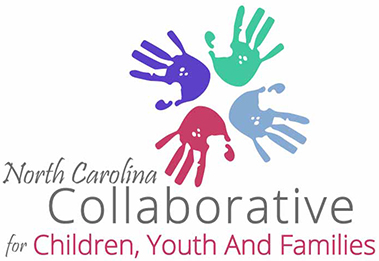COVID-19 BUDGET FACT SHEET
As the State of North Carolina and local communities move forward, with the development of additional COVID-19 resources and budget reallocations we want to ensure that attention be given to North Carolina’s vulnerable populations, including:
Children and youth not attending school,
- Difficulty implementing IEP’s for children with disabilities and 504 Plan’s for children with other challenges (i.e. integration, educational supports, etc.)
- Home health care workers serving children are not making home visits due to COVID-19 concerns
- Children & Youth not receiving meals during what would normally be school hours
- Families needing additional resources for housing and food because of job losses
- Lack of accessibility to services and providers
- Lack of access to technology and internet that is needed for virtual learning
- Even if families, children, and youth have access to free technology through school there is not always access to the internet for virtual learning
- Lack of community partners available to observe, identify and report child abuse and domestic violence.
- Recruit and retain foster parents
Children, youth, and families needing basic needs,
- Families need additional resources for housing and food because of job losses
- Support needed for homeless families that did not file taxes to receive the stimulus check
- Victims of domestic violence or child abuse having to be quarantined with their abuser with no way out or access to help or support.
- Recruit and retain foster parents
Children and youth receiving mental health services,
- Lack of accessibility to services and providers
- Lack of access to technology and internet that is needed for tele-med/tele-health visits
- If there is access to the technology and internet for tele-med/tele-health there is a hesitation for utilization by provider agencies due to HIPPA.
- Lack of community partners available to observe, identify and report child abuse and domestic violence
- Recruit and retain foster parents
Children and youth who have severe health care needs.
- Home health care workers serving children are not making home visits due to COVID-19 concerns
- Lack of accessibility to services and providers
- Health care disparities are evident in low income areas and health care needs are not being met
- Lack of access to technology and internet that is needed for tele-med/tele-health visits
- If there is access to the technology and internet for tele-med/tele-health there is a hesitation for utilization by provider agencies due to HIPPA
- Lack of community partners available to observe, identify and report child abuse and domestic violence
The pandemic has created issues cross-systems that include but not limited to the items mentioned above. Also, small business and Cares Act funds do not benefit medium size providers who serve the vulnerable populations.
For additional information or to assist in supporting these issues you can contact:
Stacy Justiss, Family Co-chair, Research and Policy Workgroup for the North Carolina Collaborative for Children, Youth and Families sjustiss@ncfamiliesunited.org or 276.274.7068
Joanne Scaturro, Agency Co-chair, Research and Policy Workgroup for the North Carolina Collaborative for Children, Youth and Families-joanne2653@aol.com or 919.601.7835
Ashley Bass-Mitchell, Agency Co-chair, North Carolina Collaborative for Children, Youth and Families- ABassMitchell@AllianceHealthplan.org or 919.651.8498
Chandrika Brown, Family Co-chair, North Carolina Collaborative for Children, Youth and Families-brownchandrika2@aol.com or 336.447.0734
